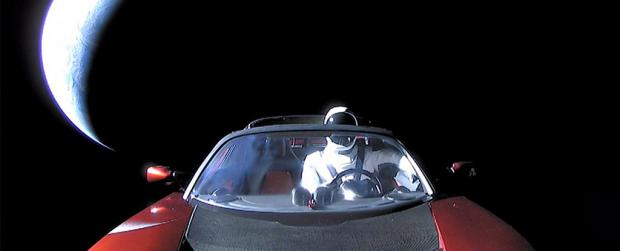
Breaking News
 Large global study analyzing data from 192 countries has sparked intense debate by suggesting...
Large global study analyzing data from 192 countries has sparked intense debate by suggesting...
 Agentic AI is the Next Phase Where AI Affects Our Lives - Live Stream
Agentic AI is the Next Phase Where AI Affects Our Lives - Live Stream
 Iran conducts surprise missile drills amid rising tensions with Israel
Iran conducts surprise missile drills amid rising tensions with Israel
Top Tech News
 EngineAI T800: Born to Disrupt! #EngineAI #robotics #newtechnology #newproduct
EngineAI T800: Born to Disrupt! #EngineAI #robotics #newtechnology #newproduct
 This Silicon Anode Breakthrough Could Mark A Turning Point For EV Batteries [Update]
This Silicon Anode Breakthrough Could Mark A Turning Point For EV Batteries [Update]
 Travel gadget promises to dry and iron your clothes – totally hands-free
Travel gadget promises to dry and iron your clothes – totally hands-free
 Perfect Aircrete, Kitchen Ingredients.
Perfect Aircrete, Kitchen Ingredients.
 Futuristic pixel-raising display lets you feel what's onscreen
Futuristic pixel-raising display lets you feel what's onscreen
 Cutting-Edge Facility Generates Pure Water and Hydrogen Fuel from Seawater for Mere Pennies
Cutting-Edge Facility Generates Pure Water and Hydrogen Fuel from Seawater for Mere Pennies
 This tiny dev board is packed with features for ambitious makers
This tiny dev board is packed with features for ambitious makers
 Scientists Discover Gel to Regrow Tooth Enamel
Scientists Discover Gel to Regrow Tooth Enamel
 Vitamin C and Dandelion Root Killing Cancer Cells -- as Former CDC Director Calls for COVID-19...
Vitamin C and Dandelion Root Killing Cancer Cells -- as Former CDC Director Calls for COVID-19...
 Galactic Brain: US firm plans space-based data centers, power grid to challenge China
Galactic Brain: US firm plans space-based data centers, power grid to challenge China
SpaceX Hid a Second, Hidden Payload Aboard Falcon Heavy, And It Sounds Amazing

Stashed inside the midnight-cherry Roadster was a mysterious, small object designed to last for millions (perhaps billions) of years – even in extreme environments like space, or on the distant surfaces of far-flung planetary bodies.
Called an Arch (pronounced 'Ark'), this tiny storage device is built for long-term data archiving, holding libraries of information encoded on a small disc of quartz crystal, not much larger than a coin.
According to Arch Mission Foundation, the California-based nonprofit behind the technology, these Archs could "preserve and disseminate humanity's knowledge across time and space, for the benefit of future generations".
The Arch looks like a shrunk-down DVD or Blu-ray, but its potential for data storage goes way beyond any optical discs you have in your home.
The technology, developed by physicist Peter Kazansky from the University of Southampton in the UK, can theoretically hold up to 360 terabytes of data, about the same amount as 7,000 Blu-Ray discs.

 This is why RAM costs so much
This is why RAM costs so much

